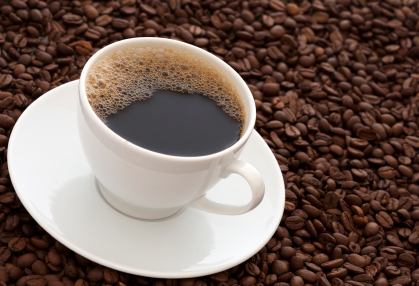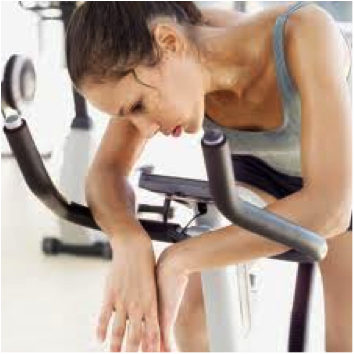- Home
- Our story
- Nutrition Quickies
- Products
- Ingredients
- Articles
- Success Stories
- Contact Us
- Timeless Radiance
- JayLab Pro Prosta-7
- BloodFlow Guardian
- VG-6
- Ultimate Sleep Solution
- Fermented Turmeric
- Collagen Complex
- LeptiSense
- Ultra-Cleanse Detox
- Krill oil
- Probiotics
- Advanced Joint Support
- Gluco Guardian
- Multi-vitamin (Active Core Complex)
- Renewal for men (T20)
- Protein powder
- Combo-packs
- Login
What Coffee Can Do To Your Body
 “Caffeine is most powerful when consumed in an anhydrous state (capsule/tablet, powder ) as compared to coffee.”
“Caffeine is most powerful when consumed in an anhydrous state (capsule/tablet, powder ) as compared to coffee.”
I am starting with this quote because it is of utmost importance.
Caffeine may be able to improve performance, increase cognitive function, and increase fatty acid oxidation in your body. In fact, caffeine may also be able to increase metabolism and fatty acid oxidation in obese, lean, and older adults.
Why is this important? SImple because caffeine has a pretty nasty reputation-and has for a long time!
Caffeine comes in two forms: one is anhydrous form, and the other is from coffee beans or tea leaves. We are most familiar with the latter.
So most caffeine you think of is full of water. However, anhydrous caffeine is not. There is only 0.5 percent or less of water found in those form of caffeine which leaves a bitter, white powder.
This powder form of caffeine is appealing to many food manufacturers who often use it in their products.
In fact, many supplement and soft drink companies use anhydrous caffeine in their products to increase the amount of caffeine found in it. You may also find this type of caffeine in soda and many of the energy drinks on the market today.
So how do you get anhydrous caffeine?
Well the actual process of extracting caffeine from coffee beans is done in two different ways 1) soaking them in hot water, or 2) subjecting them to carbon dioxide. And since soaking is cheaper to do, it is the preferred choice!
And as you know, you can also get caffeine by drinking coffee and tea, but it may not be as effective at increasing performance and boosting belly fat loss as anhydrous caffeine is.
How exactly does it help in weight loss? Let me explain.
Caffeine has direct influence on your central nervous system, or the system which controls our fight or flight response. 
Your central nervous system increases the productions of epinephrine, which (as you may know) stimulates lipolysis, or the process of burning fat for energy..
It all occurs when caffeine binds to specific receptor cells called β-adrenergic cells.
Caffeine, as research shows, may also increase energy expenditure, therefore burning fat and carbohydrates for energy.. In fact, here is the research to prove it!
Research by Bracco et al. shows just how effective ingesting caffeine is for weight loss.
In their research, they showed a dramatic response in both lean and obese subjects. By simply ingesting caffeine, the subjects showed a PROLONGED thermogenic response through the night. Simply put, they continued to burn energy all night long!
Also, the researchers noted that just ingesting caffeine, they subjects were are to oxidize more fatty acids and carbohydrates, which was then used later for energy.
From their work, they concluded that caffeine resulted in a significant (as high as 29 percent) increase in fat burning in lean and obese subjects.
How did they explain the increased weight loss? They theorized it could have been due to the release of epinephrine!
Additionally, research done by Koot et al. showed very similar results! However, they did find one difference that Bracco didn’t include: The metabolic rate (how fast your body burns calories) increased IMMEDIATELY after the caffeine was ingested.
Plus, they determined that the subjects metabolic rate stay elevated for THREE HOURS after the caffeine was first taken. This lead to a 7 percent increase in their metabolic rates!
 The end result: More calories BURNED and more BELLY FAT incinerated!
The end result: More calories BURNED and more BELLY FAT incinerated!
Now let’s take a look at a study that last for a bit longer (12 hour period)!
So here’s what happened: Researchers basically gave subjects caffeine for two hours over the course of 12 hours. They found that IMMEDIATE caffeine ingestion boosted metabolic rate by a whopping 3.4 percent over the course of the first three hours.
But over the course of 12 hours, they showed an 8 to 11 percent increase in energy expenditure in both groups!
What does that mean?
Simply put, it means that lean participants burned up to 150 EXTRA calories, while the obese subjects increased their energy expenditure by 79 additional calories.
And this was all due to adding caffeine to the mix!
Great! Most of these studies focused on lean and obese subjects, but I also mentioned older adults. Arciero et al. showed caffeine increased energy expenditure in older adults, not as significantly as the younger population, but it did increase.
They showed a 15.4 percent increase in energy expenditure in young adults, compared to 7.8 percent increase in older subjects. In a following study, older adults and younger adults had a similar thermogenic response to caffeine ingestion.
The only difference: smaller increase in fatty acids availability after consuming caffeine in older adults.
So what about increasing performance? I am glad you asked!
Every athlete struggles to find the competitive edge. Athletes today are stronger, faster, and more efficient! Caffeine can be the edge athletes are looking for.
Research done by Paluska et al. once again PROVED that caffeine has a ergogenic effect on performance. His research shows that caffeine not only improves performance, but it also improves endurance during prolonged exercise (think marathons and long cycling events).
He has showed that caffeine may have some benefits on short-term, high-intensity exercise! And to hammer the conclusions of Paluska et al, a paper submitted by Graham showed that caffeine, in moderate amounts, may act as an ergogenic aid in activities or exercise that lasts more than one minute.
Plus, he noted that caffeine may also boost speed and endurance in specific sports or activities.
Prograde Metabo 223 X has been specially designed to aid in the mobilization and destroying of fat cells. One other ingredient is the use of caffeine in the new product. Caffeine may improve performance, boost fat oxidation, improve concentration and increase thermogenesis. Try the New LeptiSense today!
References:
Bracco, D. Ferrarra, JM. Arnaud, MJ. Jequier, E. Schutz, Y. Effects of caffeine on energy metabolism, heart rate, and methylxanthine metabolism in lean and obese women. AJP-Endo. 1995. Vol. 269(4);pp.E671-E678.
Koot, P. Deurenberg, P. Comparison of Changes in Energy Expenditure and Body Temperatures after Caffeine Consumption. Ann Nutr Metab. 1999. Vol. 39;pp. 135-142.
Dulloo, AG. Geissler, CA. Horton, T. Collins, A. Miller, DS. Normal caffeine consumption: influence on thermogenesis and daily energy expenditure in lean and postobese human volunteers. Am J Clin Nutr. 1989. Vol. 49(1);pp. 44-50.
Arciero, PJ. Bougopoulos, CL. Nindl, BC. Benowitz, NL. Influence of age on the thermic response to caffeine in women. Metabolism. 2000. Vol. 49(1);pp. 101-107.
Arceiro, PJ. Gardner, AW. Calles-Escandon, J. Benowitz, NL. Poehlman, ET. Effects of caffeine ingestion on NE kinetics, fat oxidation, and energy expenditure in younger and older men. Am J Physiol. 1995. Vol. 269(4 Pt 1);pp. E671-78.
Paluska, SA. Caffeine and exercise. Curr Sports Med Rep. 2003. Vol.2(4);pp. 213-219.
Goldstein, E. Ziegenfuss, T. Kalman, D. Kreider, R. Campbell, B. Wilborn, C. Taylor, L. Willoughby, D. Stout, J. Graves, SB. Wildman, R. Ivy, J. Spano, M. Smith, A. Antonio, J. International society of sports nutrition position stand: caffeine and performance. JISSN. 2010. Vol. 7(5).


